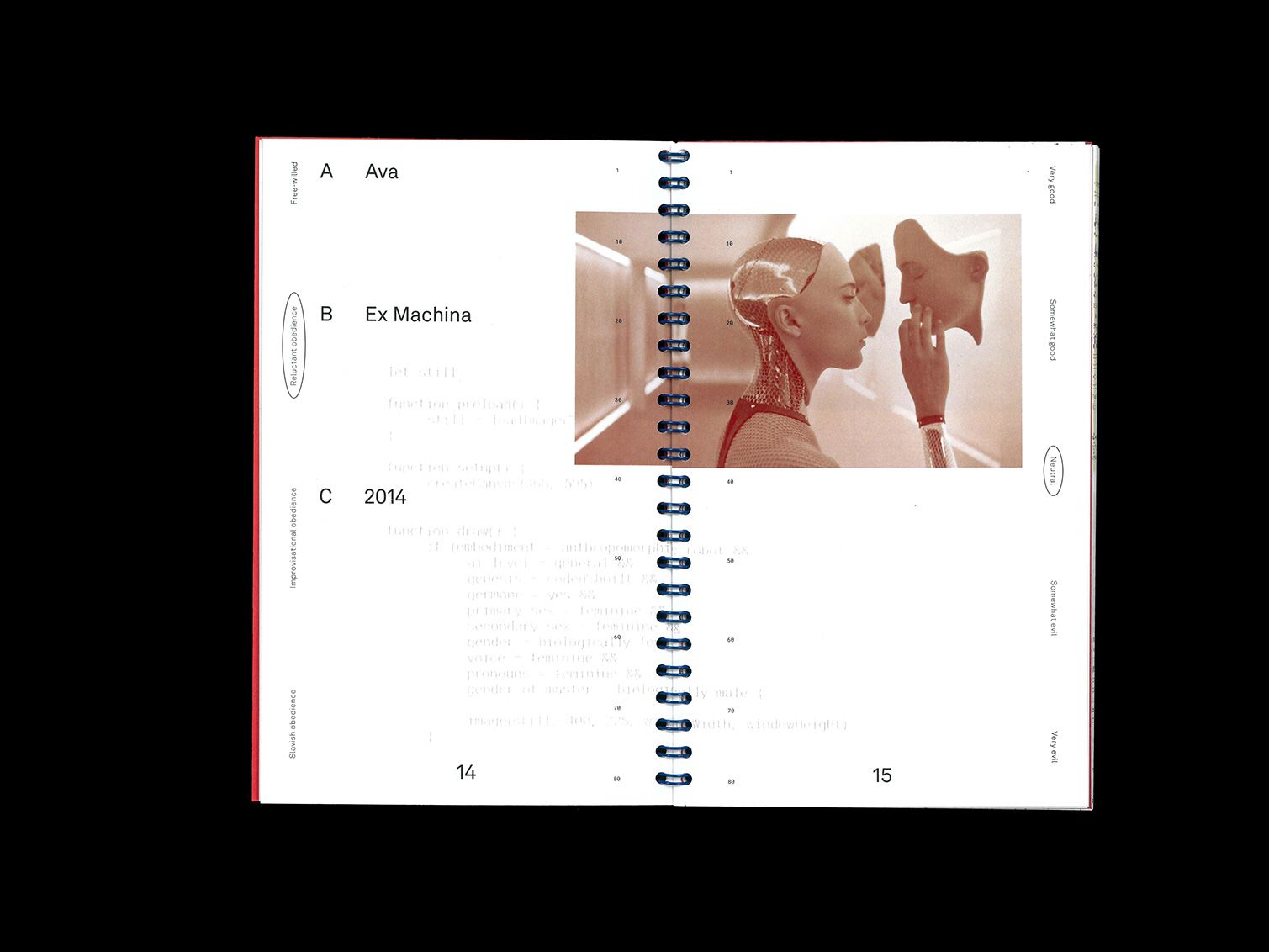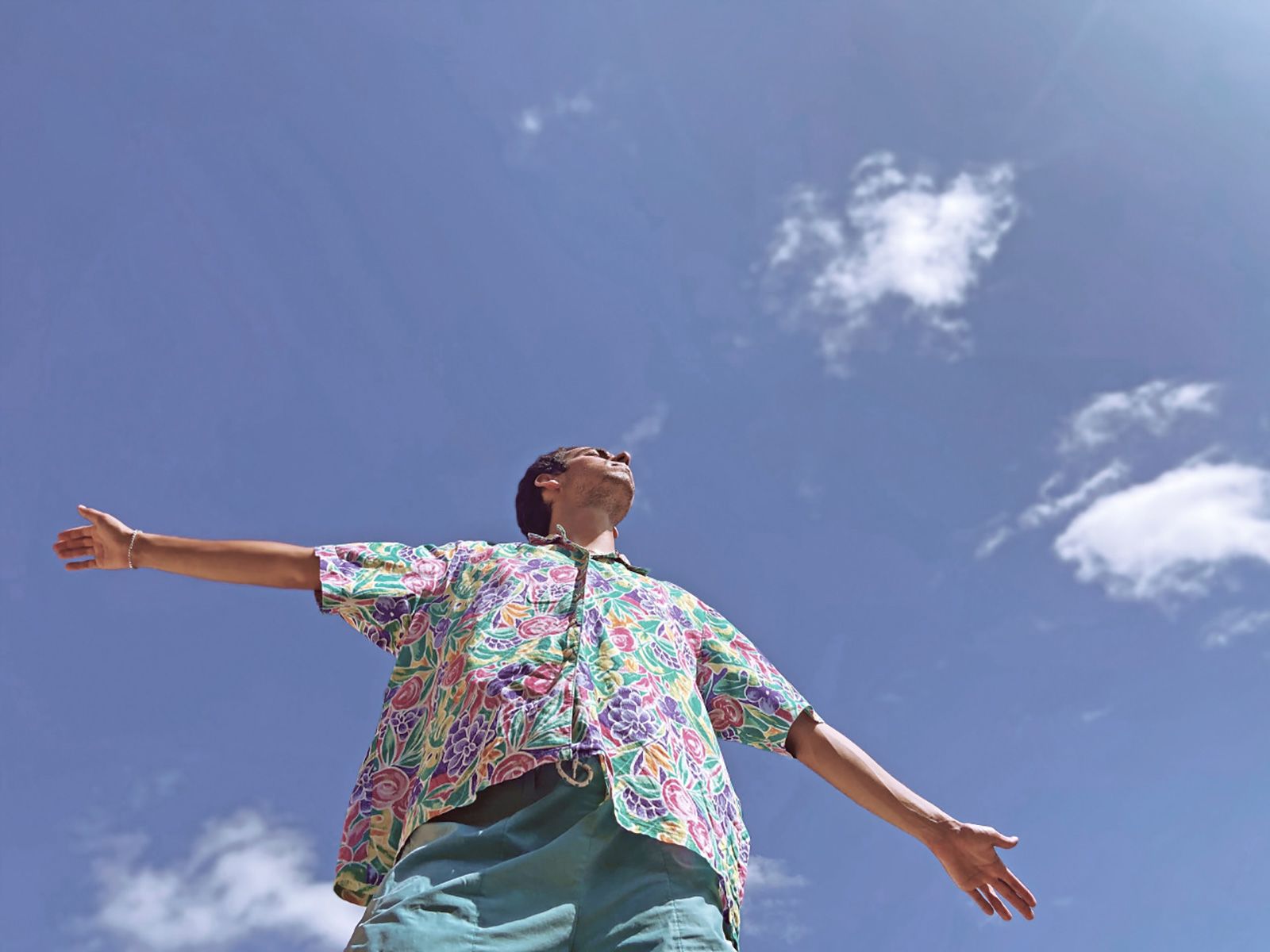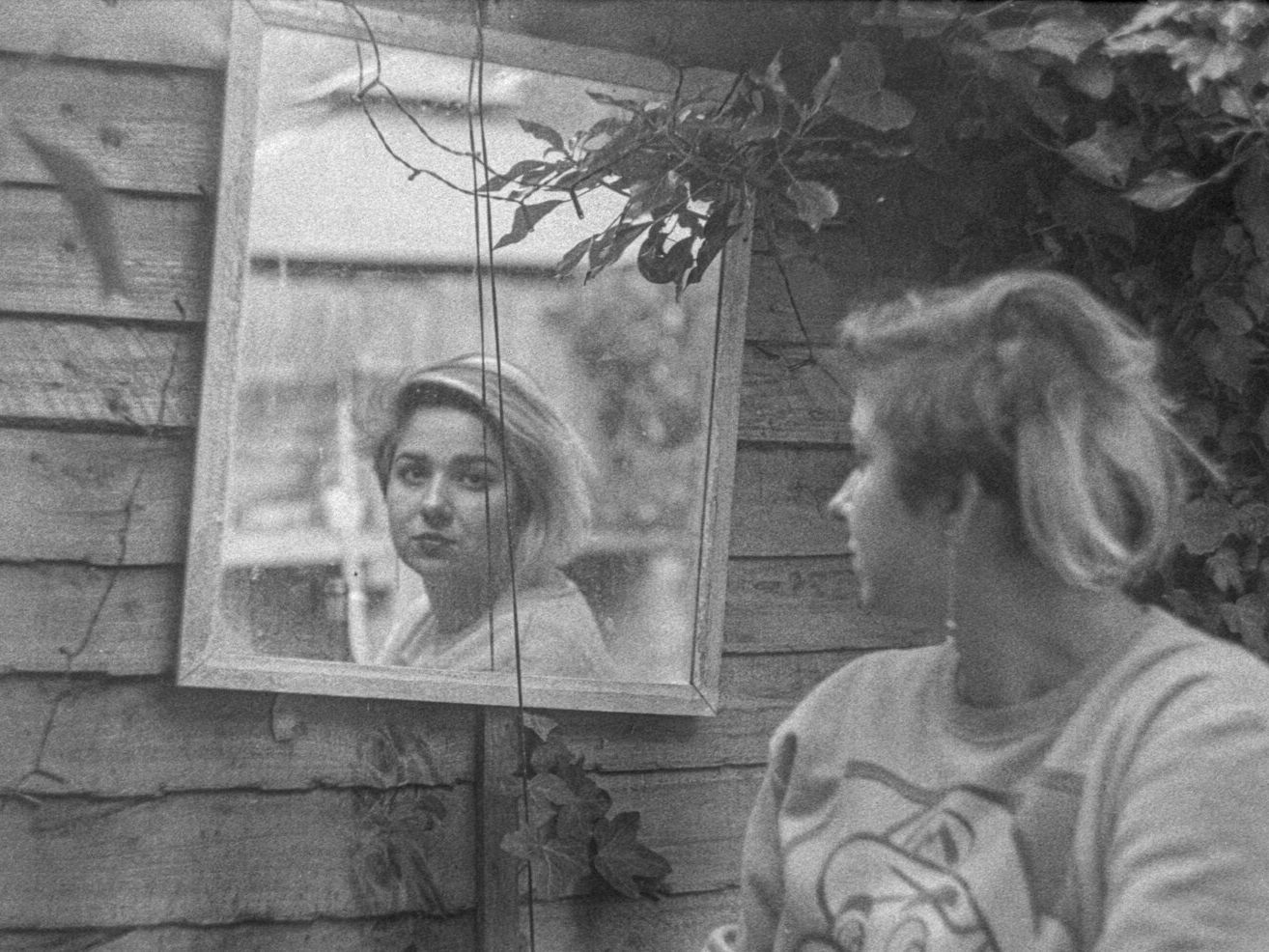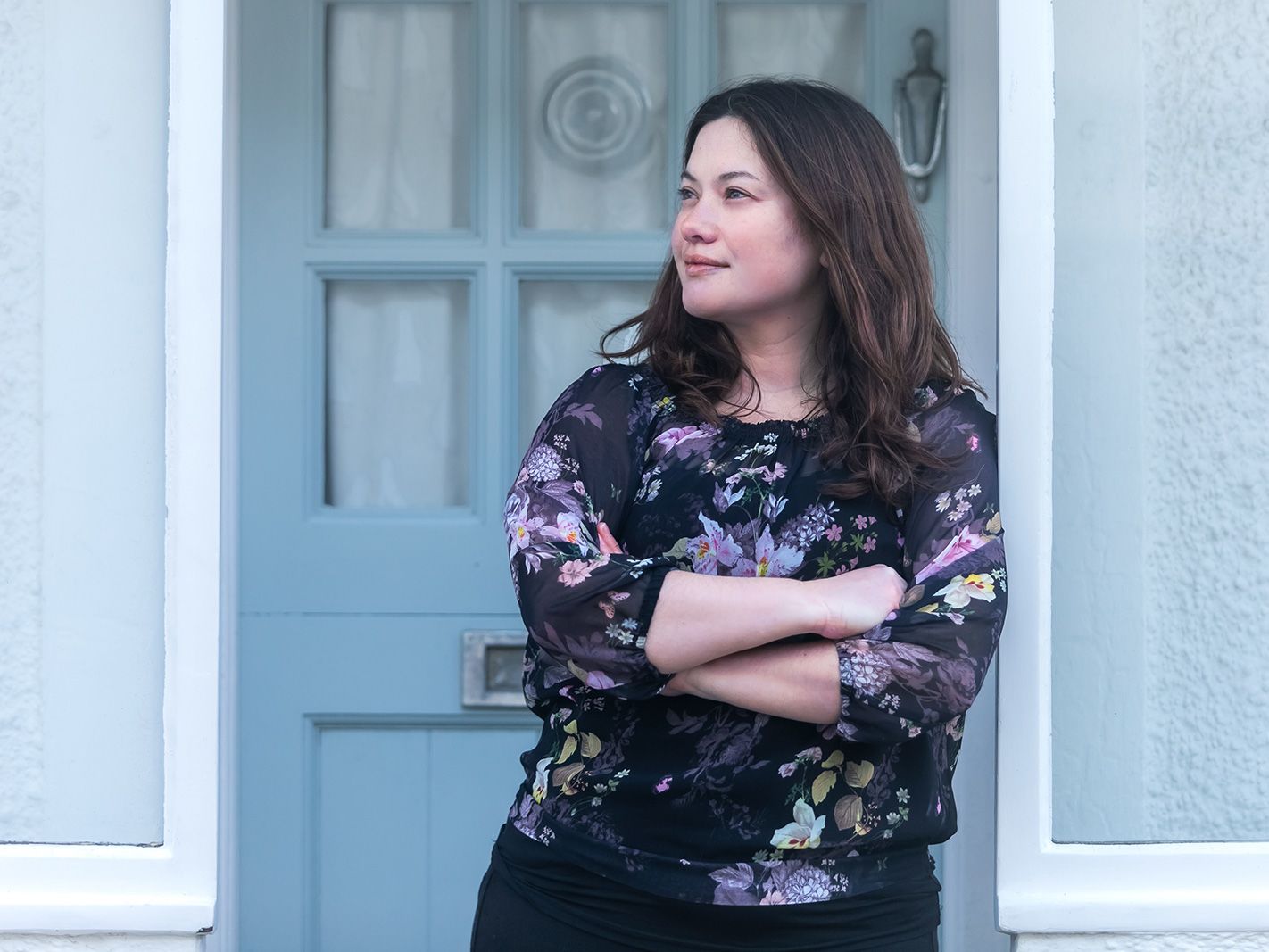
Mentoring Spotlight: Sheida Kiran x Aileen McCracken
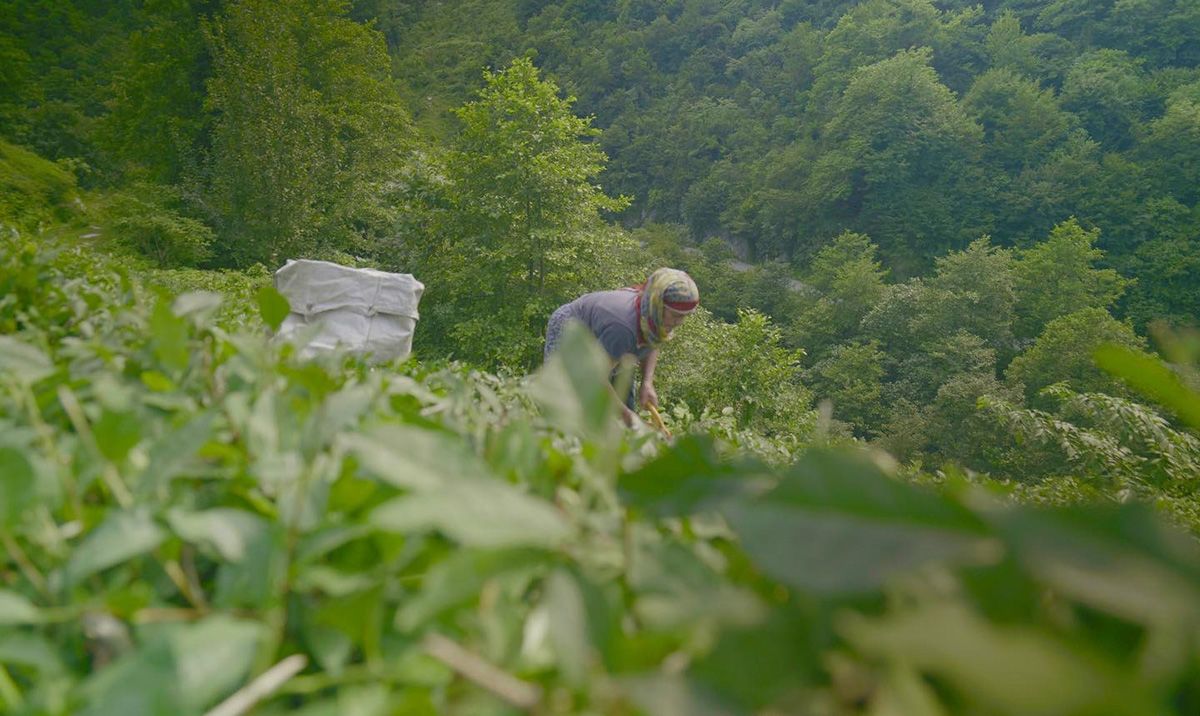
- Written byChloe Murphy
- Published date 31 January 2022

Graduates of London College of Communication (LCC) are makers, thinkers and innovators. Bringing inspiring ideas and ways of working to their chosen industries, they change the world around us in ways that make a positive difference to society.
Our alumni remain an important part of our community, and retain close ties to the College throughout their journeys as practitioners. As a result, many continue to make a profound impact on emerging creatives - not only through the influence of their work, but by taking part in opportunities to share vital industry insight, useful contacts and business knowledge. This might be through activities such as panel discussions, speed networking sessions and live briefs, all of which help to grow both the confidence and employability skills of the next generation.
The LCC Industry Mentoring Programme connects professionals with current students who are ready to take the next step in their career development. Many of our mentors are themselves graduates of the College and wider UAL community, bringing with them profound understanding, experience and insight in ways that resonate with those at the very start of their careers.
Together, mentors and mentees catch up regularly to explore a variety of ideas and aspirations that are tailored to specific goals. This helps students to feel more confident, informed and engaged in the professional landscape, while also enabling mentors to further develop their own skill sets while forming new connections across LCC's vibrant network.
We caught up with MA Documentary Film student Sheida Kiran and her mentor, series producer Aileen McCracken, to explore the importance of developing social narratives, collaboration within the screen industries, and nurturing key skills in receptive, supportive ways.

Sheida, how did you first become interested in documentary film?
I actually started off by being interested in social sciences and conducting qualitative research on topics around women and migration. However, I always knew I wanted to create work that was accessible and easily understandable for everyone. I also wanted to report through narratives shaped by ethnographic research after having spent time engaging and living with different communities.
Bridging these 2 desires led me to making observational short documentaries, which enabled me to make easily accessible content while spending time with my contributors and collaborating with them to tell their stories.
Tell us about your creative practice – what key themes do you explore through your work?
For me, documentary filmmaking involves bringing stories and social issues to life through the subjective lens of the filmmaker. The main themes I explore in my work involve the experiences of marginalised female and refugee communities, which I try to explore through two main techniques: ethnography and collaboration.
The ethnographic approach involves living with them, becoming a part of their daily routine, and building the rapport needed to accurately depict a person’s life. On the other hand, taking a collaborative approach is something I'm sure to introduce early in the filmmaking process, where we’ll discuss the direction of a film while scripting and building the story together. This is a really important element of my practice - if someone was to make a film about your life, would you not want a say in it?
Sheida, why did you decide to apply for mentorship?
Even though I knew I wanted to go into documentary film, I was never clear on what path I had to follow so I could enter this world. The idea of graduating scared me so much as I couldn’t really see what was next for me - I felt as though I needed guidance on how to pursue my passions while finding out more about the right organisations and places to apply to.
The idea of being teamed up with someone who had been in the same position as me in the past while they were studying at LCC made me very excited and eager to learn from their experiences.

Aileen, tell us a little bit about your your creative journey so far.
Being in the telly business was not Plan A! When I left school, I went to art college with every intention of studying Fine Art, but after 2 years, I swapped to the BA course in Photography, Film and Television at what was then the London College of Printing (LCP, now London College of Communication).
I was then given a chance to work as a researcher, then an associate producer, and eventually a director for an independent company where I had the opportunity to work on many different shows including Dispatches and Cutting Edge for Channel 4, which was where I really learnt the trade. I always remember my first big interview for a Dispatches programme, and feeling really sick with nerves as I was dealing with the boss of the Coal Board.
In those early years, I worked with some very talented people who really set me up for the rest of my career, training and encouraging me to master all the skills I needed for going out on shoots and heading back into the edits.
I cut my teeth as a series producer in the first year of Channel 5 with The Real Monty, and since then, I’ve made shows for prime time on BBC1 including Cars, Cops and Criminals and Food Inspectors, as well as programmes for Sky1 and Channel 4.
More recently, I’ve crossed from observational documentaries and factual content into factual entertainment as the showrunner and executive producer on Say Yes to the Dress UK, which is great because there’s nothing worse than getting stuck in a rut.
It’s brilliant to be able to share different people’s stories, and working in television means you always look forward to the next challenge. It’s a great privilege to do a job I truly enjoy.
Why did you decide to volunteer your time to LCC's Industry Mentoring Programme?
I’ve always had a passion for training and bringing new talent into any company. I really believe that we need to make sure that we have the broadest range of new entrants to the industry as possible.
Having worked all over the country, I’ve seen first-hand how a lack of training has led to skills-shortages in certain areas that has been a real problem in the past. I think it’s important to give back to the younger generation, but also to inform them how the industry truly works, and to make sure that they're equipped for what can be a bumpy journey.

What support have you both been able to access and offer through taking part in our mentoring initiative?
Sheida: We’ve been able to participate in all kinds of activities together, really: from taking the time to talk about my final project to finding jobs that I could apply for.
Aileen was always incredibly good at tailoring the session to what she thought would be of best use for me at that moment of time. For example, due to Covid restrictions, there was a period when we thought I wouldn’t be able to travel to the Black Sea Coast of Turkey, where I was due to shoot my film Harvesting Turkey's Tea. She spent a significant amount of time trying to help me overcome geographical barriers by making sure I had a story I could portray regardless of travel restrictions. When we found out that I could go after all, she helped me to think about what my story was, and how I could work with my contributors to build my narrative arc.
Besides this, we spent time talking about the various positions available in the documentary industry, and how I could use my skills in my future career. This involved looking through talent agents and different companies’ trainee schemes, and discussing which ones would work best for me.
Aileen: We’ve had a number of sessions where we’ve discussed various projects and career paths. As Sheida had an interest on the music side of television, I organised for my colleague Julian Hamlin, a well-known composer for television, to offer some advice on how that side of the business works.
Sheida and I have also taken a look at her CV, updating it with the skills needed to get her on the career ladder as well as on internships at various broadcasters. We’ve explored the kinds of social media and business related-sites that are worthwhile keeping up with, as well as the structure of production and the different ways of progressing - because you don’t start as a director!

Sheida, how has taking part in the Industry Mentoring Programme helped you to develop your career and your practice?
Firstly, I feel more confident in my ability to search for jobs and decide on what’s right or wrong for me. I’ve also learned various ways in which I can enter the industry, and which routes are best fit.
I don’t think I could have figured this myself, and Aileen paved this way for me in an incredible way!
Aileen, what have been the highlights of your time as an LCC industry mentor?
I think my highlight have been the very informative discussions with Sheida about her passion for telling women’s stories, and for bringing a new, more global perspective to film.
It’s been great to hear her fresh views and enthusiasm for her final project.

Sheida, what are your top tips for other students on how to make the most of mentorship?
Keep in touch with your mentors and ask them for help when you need it! They are there to support you and be a part of the process as you grow from a student to a professional, and they have so much valuable input to provide you.
They also become a friend and someone to speak to about your creative practice which is incredibly important to have too.
Aileen, why would you encourage other creative practitioners to sign up as mentors?
Everyone should give something back, and this is a great way to make a difference.
You really only gain from mentoring, and it’s been an absolute pleasure to take part.
LCC's Industry Mentoring Programme is currently offered as part of our Upgrade Your Future Path initiative, which supports postgraduate students to explore potential careers in the creative industries. Applications for both mentors and mentees will reopen in 2022.
Related links:
- Watch Sheida's documentary, Harvesting Turkey's Tea, on BBC iPlayer.
- Explore our Industry Mentoring Programme.
- Find out more about the work of Business and Innovation at LCC.
- Learn more about our MA Documentary Film course.
